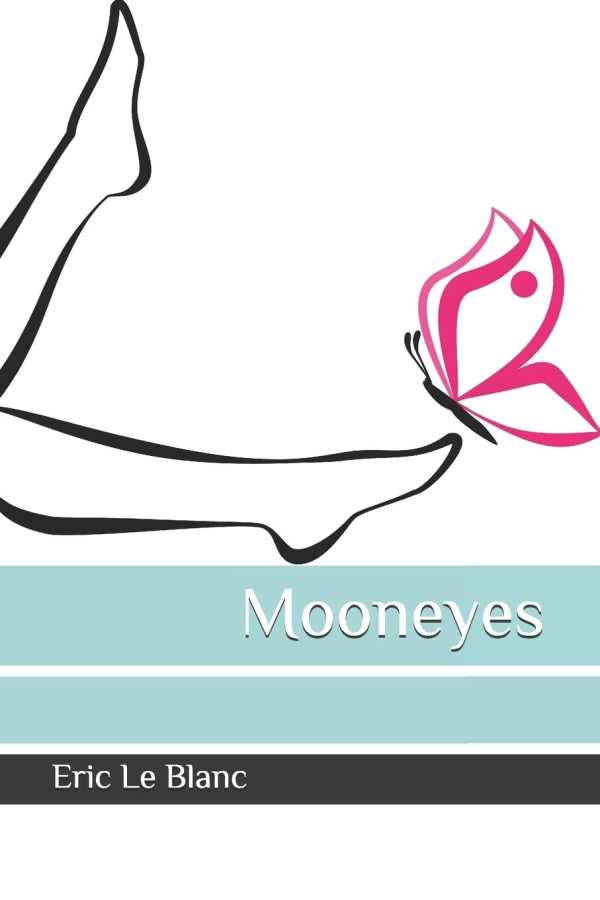
Mooneyes
In the celebratory novel Mooneyes, love thrives in the face of mental illness.
Eric Le Blanc’s novel Mooneyes follows the trials and triumphs of a woman who is bipolar.
Growing up in Arkansas, Tracy is known for her boundless energy and joy. She’s forward, telling a star high school football player, Ben, that he will date her. They go on to lead the football team together; later, they get married and have two daughters, and Tracy earns two English degrees.
But even after she establishes her career and starts a loving family, Tracy finds that her mother still isn’t proud of her. Tracy blames her mother for killing her father with her bitterness; she experiences depression and attempts suicide. She is diagnosed and treated as bipolar.
Then Tracy’s family joins the church where she meets Cindy, a captivating lawyer. The women fall in love, divorce their husbands, and start a new life together in Vermont. Though these big changes trigger another depressive episode for Tracy, this time she is revived thanks to Cindy’s love. She forges a community in their new town. As challenges test Tracy’s resolve, she fights her disease with a vengeance.
The book’s chapters center Tracy’s manic and depressive periods. Herein, extreme forces shape and destroy her life. Her pendulum-swinging personality and fieriness are clear each time she speaks, whether she’s swearing, yelling out football plays, or dramatizing biblical stories for her Sunday school class. Her thoughts about her love for Cindy grate against her shame and suicidal ideation. And she has to temper such passions in the company of others, so that her family discussions are vulnerable and her exchanges with neighbors are teasing. Indeed, those beyond her immediate circle are present as a welcome source of comic relief, balancing out Tracy’s grave situations; still, the world beyond her seems less compelling than what is going on in her mind.
Mimicking Tracy’s own volatility, the book assumes a roller-coaster pace. Her bipolar disorder becomes like an amorphous, slippery enemy to the story’s progression. And while the book’s church scenes are presented as possible settings for healing, they are an underdeveloped presence in the end. Conversely, Cindy’s presence is a steadying force in the story, feeding into intimate domestic scenes and tempering the book’s drama, including around an accident and a coma. She is a precise, emphatic secondary heroine whose steadfastness makes the book’s triumphant, odds-defying ending more credible.
In the celebratory novel Mooneyes, love thrives in the face of mental illness, thanks to a partner who makes it possible to never give up.
Reviewed by
Mari Carlson
Disclosure: This article is not an endorsement, but a review. The publisher of this book provided free copies of the book and paid a small fee to have their book reviewed by a professional reviewer. Foreword Reviews and Clarion Reviews make no guarantee that the publisher will receive a positive review. Foreword Magazine, Inc. is disclosing this in accordance with the Federal Trade Commission’s 16 CFR, Part 255.
